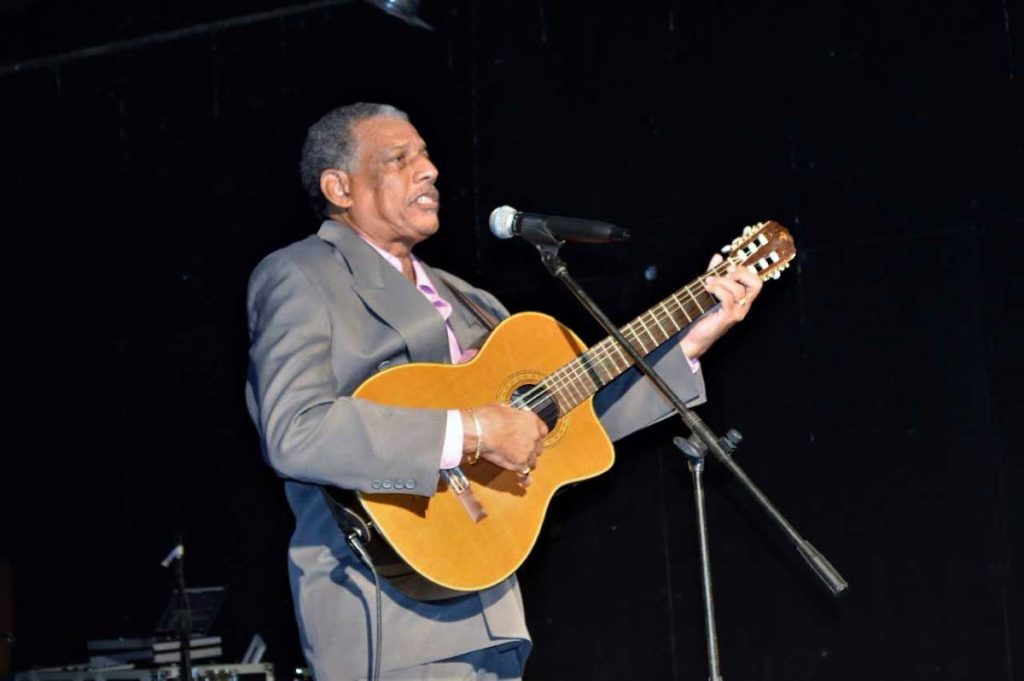I’ve seen world through calypso

As the holiday season approaches, there are certain Christmas songs that are iconically Trini. One of them you might recall is Make a Friend by Relator. The lines, “Christmas is a joy that comes from above...Christmas is a time the whole world falls in love...Spread your arms apart, hug and kiss a partner....,” solicits a warmth and memory many share. Christmas is Yours and Christmas is Mine brings fond memories to many Trinis.
It is through calypso that Willard “Lord Relator” Harris has seen much of the world. He has toured with groups and other performers like the Little Carib Theatre, Malick Folk Performers and pan jazz musician and composer Andy Narell.
Much has changed since Harris won the calypso monarch in 1980. It was a huge leap when he received $22,000 in prize money. Prior to that he got $1,200 to $1,500 for the calypso monarch.
The performer, who started in 1965, has a string of accomplishments that includes winning the 1966 Scouting for Talent TV show and being the Buy Local calypso monarch in 1970. He was a part of the late Kitchener’s tent for 14 or 15 years before becoming a solo performer in 1985.
His discography narrates important parts of the Caribbean’s and TT’s history. Gavaskar, Food Prices (one of the songs which won him the 1980 calypso crown) are just a few of his works. The calypsonian and performer has seen the art form morph over the years and while a lot has changed, he believes there are some things which could be done differently to help the art form further develop.

For him, yearly competitions have been a major obstacle to the development of TT’s music. He said in a phone interview with Newsday, “One of the drawbacks in calypso is this competition we want to concentrate or highlight every year. The steelband suffers a similar thing. We can do work that can have international appeal but we don’t have to be in a competition to win a prize every year. I see the steelband people narrowing their potential by learning one song. You’re playing six weeks in the night, practising one song for one competition, for one occasion. There is so much of music out in the world the steelband can play. You can play standards and tour the world. You have to open up your chances, open up your head.
“I don’t like this competition thing too much because you can go to a calypso tent and hear 400 calypsoes in any season and the majority of those 400 calypsoes you hear in the tents, you do not get on the radio, because the radio is promoting Carnival and songs with a beat that people can jump up in a fete and so on.”
The world, he said, was unable to keep up with what TT was doing.
“By the time the thing becomes a hit record, we rub it off and it is not relevant. You can’t sing that song for 2018 for the Carnival. That is a stupid rule that we have. Stevie Wonder’s pieces still play. They make an album every five years and they put it out there and when they think the market wants another one they put it out. But they don’t have to make a song every season. We shoot ourselves in the foot on a yearly basis.”
But Harris was adamant that calypso was not dead. Instead he believes that soca evolution has given calypso new life. He sees them co-existing. “We keep saying that all the time. The soca has given it a new life, if you want to say that. Calypso is not dead! It is just that the appeal is there with the soca music as opposed to traditional calypso. They both can co-exist. In that we can have archives on the traditional calypso and keep it for posterity and have references to world events and things that happen.”
And drawing on cricket as an analogy, he said soca and calypso were like cricket’s new form, T20, as opposed to the traditional. The University of the West Indies (UWI) giving honorary degrees to artistes like Black Stalin, Superior, Winston De Vine and recently, Superior, demonstrates what he terms a step in the right direction and proves the art form’s value to TT.
“I have never heard of anyone singing soca who got an award or doctor of letters from the university. In terms of value, the traditional calypso would always be there,” he said.
Harris is looking forward to retirement as he turns 70 on January 22, 2018, to simply “do nothing.” While he won’t just put down his legendary guitar for good, he intends to do things more on his terms and in his time. But if he decided to do anything in his quiet years, it would be to do more Christmas music, since “Christmas pieces never die.”
“If I for one had to make an investment, I would invest in Christmas music, even in my retirement.”

Comments
"I’ve seen world through calypso"